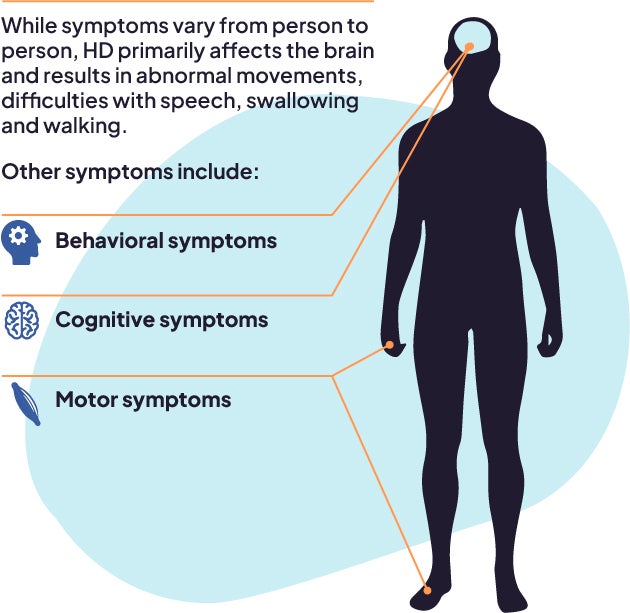
Introduction to Huntington Disease
Huntington disease (HD) is a hereditary neurodegenerative disorder that significantly impacts an individual’s physical and mental capabilities. Affecting approximately 5 to 10 individuals per 100,000 people of European descent, Huntington disease has profound implications not just for those diagnosed but also for their families and communities. The relevance of understanding this disease has increased, especially given ongoing genetic research and advancements in treatment options.
What Causes Huntington Disease?
Huntington disease is caused by a mutation in the HTT gene, located on chromosome 4. This mutation leads to an abnormal repetition of the CAG (cytosine-adenine-guanine) sequence, resulting in the production of a toxic protein that gradually damages brain cells, particularly in areas responsible for movement and cognition. The symptoms usually appear between the ages of 30 and 50, but onset can occur at any age. Genetic testing offers a definitive way to diagnose HD, though it raises ethical considerations regarding pre-symptomatic testing.
Symptoms of Huntington Disease
The symptoms of Huntington disease are categorized into three main types: motor, cognitive, and psychiatric. Motor symptoms include chorea (involuntary jerking or writhing movement), dystonia, and coordination issues. Cognitive decline may manifest as difficulties with planning, organizing, and problem-solving. Psychiatric symptoms can include depression, anxiety, and, in some cases, psychosis. As the disease progresses, individuals may require increasing levels of care.
Current Treatment Options
While there is currently no cure for Huntington disease, several treatment options exist to help alleviate symptoms and improve quality of life. Medications such as tetrabenazine can help reduce chorea, while antidepressants may assist in managing mood disorders. Occupational and physical therapy can aid in maintaining motor function and independence for as long as possible. Additionally, ongoing clinical trials are investigating promising new therapies that target the underlying genetic causes of HD.
Conclusion and Future Outlook
Huntington disease presents significant challenges both for those diagnosed and their families. Current research is focusing on gene-editing technologies, including CRISPR, which show promise in altering the course of this disease at the genetic level. As we move forward, raising awareness and understanding of Huntington disease will be vital in advocating for research funding and providing support to individuals and families affected by this condition. Ultimately, hope remains on the horizon as we continue to strive for better treatment options and a potential cure.



